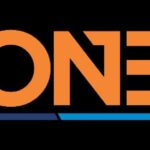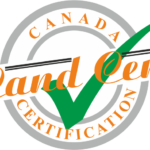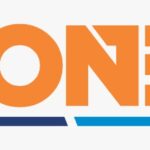Introducing Gabon
About Gabon
Gabon is bordered by the Atlantic Ocean, Equatorial Guinea, Cameroon and the Congo. The 800km- (500-mile-) long sandy coastal strip is a series of palm-fringed bays, lagoons and estuaries. The lush tropical vegetation (which covers much of the interior) gives way in parts to the savannah.
There are many rivers along which settlements have grown. Many of the Bantu people are concentrated in coastal areas and villages along the banks of the many rivers. The main cities are Libreville, Port Gentil, Lambarene, Moanda, Oyem, Mouila and Franceville.
The Republic of Gabon moved peacefully into independence (from France) in 1960. President Omar Bongo, who succeeded Leon M’Ba as president on the latter’s death in 1967 is now one of Africa’s longest serving heads of state. In 2003, a change of constitution meant that Bongo could run for office as many times as he wanted and Bongo, now in his 70s, is likely to remain as president for life. Gabon’s only problem in the region concerns the island of Mbagne which lies in the Corisco Bay, potentially the site of large oil and gas deposits: occupied by Gabon in 1970, it is also claimed by Equatorial Guinea.
But touristic natural resources are likely to centre around features such as stunning white beaches, an abundance of wildlife, including gorillas, panthers, parrots and elephants, and verdant forests.
Language, Culture & History
History of Gabon
The oldest human artefacts to have been discovered in Gabon are stone spearheads dating back to 7000 BC, but little more is known about Gabonese prehistory. The earliest of the present inhabitants are the Pygmies who arrived from central Africa in around AD 1100. They were followed into the region over several centuries by various Bantu tribes including the Fang.
Europeans first discovered Gabon in 1474, when the Portuguese sailor Lopez Gonzalvez entered the Gabon estuary. Between the 16th and 18th centuries the region became part of the Loango Kingdom, though from a European perspective trade became the watchword of the next four centuries, with European empires negotiating with coastal tribes for slaves and ivory from the interior. The slave trade ceased in the middle of the 19th century, but not before it had destroyed the social inter-relationships of the tribes it affected.
Land on either side of the Gabon Estuary was annexed peacefully by the French during the mid-19th century as a province of French Equatorial Africa. The Republic of Gabon moved peacefully into independence in 1960 after a three-year period of internal self-government.
A French-style constitution was adopted the following year and Leon M’ba became Gabon’s first president. After seven years of stormy pluralism, the ruling Parti Democratique Gabonais (PDG) declared Gabon a one-party state, but retained broadly pro-Western policies.
Gabon’s current president, President Ali Bongo Ondimba, took office in 2009, and is the son of President Omar Bongo – one of Africa’s longest serving heads of state. From 1990, in common with much of the rest of Africa, Omar Bongo’s government effected the transformation from a one-party state to a pluralistic political system.
At the heart of the country’s policies lie exceptionally close relations with France. In particular, Gabon is a key supplier to France of uranium and a number of other strategic minerals.
Did you know?
- Gabon is home to 80% of the world’s gorilla
- President Omar Bongo was one of the longest serving heads of state anywhere in the world, with a presidency lasting 42
- Gabon’s rainforests are home to 777 species of
Gabon Culture
Religion in Gabon
About 60% Christian (mainly Roman Catholic), the remainder follow Muslim and animist beliefs.
Social Conventions in Gabon
Dance, song, poetry and myths remain an important part of traditional Gabonese life.
Photography: It is absolutely forbidden to photograph military installations. In general, permission to photograph anything should be requested first, to prevent misunderstandings.
Language in Gabon
The official language is French. The principal African language is Fang. Eshira is spoken by a tenth of the population. Bantu dialects spoken include Bapounou, Miene and Bateke.
Geography & weather
Weather and climate
Best time to visit
Equatorial with up to 80% humidity. The dry season is from June to August, and the main rainy season is from October to May. Average temperatures are 25°C (77°F).
Required clothing
Lightweight tropical wear, with raincoats advised during the rainy season.
Geography
Gabon is bordered to the west by the Atlantic Ocean, to the north by Equatorial Guinea and Cameroon, and to the east and south by the Congo. The 800km-long(500 miles) sandy coastal strip is a series of palm-fringed bays, lagoons and estuaries. The lush tropical vegetation (which covers about 82% of the interior) gives way in parts to the savannah. There are many rivers and they remain the main communication routes along which settlements have grown. Of the 40 or so Bantu tribes, the largest are the Fang, Eshira, Mbele and Okande. Only a small percentage of native Gabonese live in the towns, as the population is concentrated in the coastal areas and the villages along the banks of the many rivers, following a more traditional rural style of life.
Business Opportunities
Doing Business in Gabon
Lightweight suits are required. French is the principal language used in business circles. Translators and interpreters are available through the embassy. Strong business ties remain with France despite competition from the USA and Japan.
Office Hours
Mon-Fri 0730-1200 and 1430-1800.
Economy
Oil reserves and mineral deposits have allowed Gabon to develop into one of Africa’s more successful economies. At US$5,900, Gabon has one of the highest per capita incomes on the African continent.
One-third of GDP comes from the oil industry; there are also significant mining operations producing manganese and uranium. There are confirmed deposits of iron ore (which are substantial) and also a number of rare metal ores.
There is a small manufacturing base engaged in oil refining and the production of plywood, paints, varnishes and detergents, dry batteries, cement, cigarettes and textiles. Future industrial growth in this sector is likely to be limited by a shortage of skilled labour, high costs and inadequate infrastructure.
Meanwhile, agriculture remains important, as it still employs two-thirds of the working population. Gabon produces coffee, sugar cane, rubber and some other cash crops -also cassava and maize for domestic consumption.
Both the timber and fishing industries, while making strong contributions to the national economy, may be the subject of future expansion as export earners, although timber production is likely to be limited by environmental concerns. Like all primary producers, Gabon remains vulnerable to fluctuations in commodity prices.
Gabon is a member of the Central African Customs and Economic Union (CEEAC) and of the CFA Franc Zone.
Further information can be obtained from the Chambre de Commerce, d’Agriculture, d’Industrie et des Mines du Gabon (see Commercial Information below).
GDP
US$8.3 billion (2005).
Main exports
Crude oil, timber, manganese and uranium.
Main imports
Machines and equipment, food, chemicals and construction materials.
Main trading partners
China, France, Germany, Japan, The Netherlands, UK and USA.
Keeping in Touch in Gabon
Telephone
No area codes required.
Mobile Phone
Roaming agreements exist with some international mobile phone companies. Coverage is variable.
Internet
Internet is increasingly available; there are a growing number of Internet cafes in Libreville.
Media
Mostly, Gabon’s media is government controlled and journalistic pressure is subtle but ever-present.
Post
Airmail from Gabon takes at least one week to Western Europe. Urgent letters should be sent by special delivery to ensure their safe arrival.
Post Office hours
0800-1200 and Mon-Fri 1430-1800.
Plan your trip
Here’s Journey
Flying to Gabon
The quickest route to Gabon from the UK or the USA is with Air France (www.airfrance.com) via Paris. Other options include flights with Ethiopian Airlines (www.ethiopianairlines.com) via Addis Ababa, Royal Air Maroc (www.royalairmaroc.com) via Casablanca, and Turkish Airlines (www.turkishairlines.com) via Istanbul.
Airport Guides
Libreville Airport
Code LBV
The airport is 12km (7 miles) north of the city. TelephoneAddress
Flight times
From London – 9 hours 30 minutes (including stopover); New York – 16 hours (including stopover).
Departure tax
None.
Travelling to Gabon by Rail
Driving to Gabon
Getting to Gabon by boat
Main ports: Owenda, 10km (6miles) from Libreville. Freight ships to Sao Tome or Cameroon may take passengers; enquire locally for details.
Staying there
Hotels
There are private hotels and hotel chains in Libreville and other major cities and towns but, like most of the accommodation in Gabon, they are expensive. Tourist facilities, including tourist camps, are being expanded throughout the country, especially along the coast and in towns close to the national parks.
Camping
Free but limited. Caution should be used as to where camp is made.
Other accommodation
While you’re there
Places to see & do their
Attractions in Gabon
Explore Bateke and Mayumba
The Bateke Plateau, comprising savannah and forest galleries shaped by tumultuous rivers is a known wildlife hotspot. Creatures include forest elephants, buffalos, river hogs, gorillas, panthers, crocodiles, monkeys and parrots. Alternatively, traverse the enchanting Mayumba, a thin strip of land set between sea and lake, where up to 3,000 humpback whales can be seen between July and September.
Gawp at the Presidential Palace
Gabon’s former president Omar Bongo, ordered the construction of the Palais Presidential on Libreville’s waterfront in the 1970s. Costing an estimated US$800 million, it came close to bankrupting the newly independent nation. Even though visitors are not permitted inside the heavily-guarded palace, you are able to view its spectacular modernist design and take photographs from outside.
Get active on the beach
The best beaches for peace and quiet are the deserted beaches of Pointe Denis and Ekwata in Gabon’s north, and Mayumba and Sette Cama in the south. Both Libreville and Port Gentil have beaches equipped for waterskiing, while Cap Esterias, 35km (22 miles) from Libreville, is a popular water sports centre at weekends. Perroquet and Pointe Denis offer good skin diving.
Go fishing
Popular among European visitors, many of Gabon’s rivers and lakes offer excellent catches, though local fishermen can find the largest variety of fish along the country’s 900km (550 mile) Atlantic coast and in the numerous lagoons located at the mouth of the River Ogooue. Equipment can be hired at Port Gentil.
Haggle at Mount Bouet Market
Don’t miss the hustle and bustle of Mount Bouet Market Libreville’s largest market. The hundreds of stalls selling food, textiles, household goods and traditional medicines funnel visitors into narrow maze-like alleys. On the market’s outskirts is a more relaxed shopping district, predominantly selling printed clothes.
Study local customs at the National Museum
The National Museum of Art and Traditions in Libreville, a short stroll from the Presidential Palace, contains some of the most beautiful wood carvings in Africa, especially the indigenous Fang style of carving, which influenced Picasso’s figures and busts. The photographs of Gabon in bygone days, and the musical instruments are also worth some time.
Take a forest safari in Lope National Park
Easily accessible in the centre of the country, Lope National Park is Gabon’s largest. Its landscape, containing a mixture of savannah and dense forest, provide habitats for lowland gorillas, chimpanzees and forest elephants, as well as a variety of other primates, large mammals and around 350 species of bird which can all be tracked on foot or by car.
Tour Lambarene’s famed hospital
Spanning the Ogooue River, Lambarene was brought to the world’s attention by the lifelong dedication of Albert Schweitzer, a German-French doctor and world-class musician awarded the Nobel Peace Prize in 1952. Still functioning, the Schweitzer Hospital includes a small museum dedicated to the doctor created from his basic living accommodation.
Visit the craftsmen of M’Bigou
The villages of M’Bigou and Eteke in Gabon’s south are famed for the quality of the normally light grey soapstone extracted from the surrounding hills, and the carvings produced by the craftsmen there that result. The nearby gold mines are also well worth a visit.
Walk the Atlantic coast
The winding route leading from Libreville to the beach of Cap Esterias 35km (22 miles) north offers a chance to explore Gabon’s natural beauty, such as the forest of giant trees you will pass through. Rocks abound with sea urchins, oysters and lobsters. Cap Esterias itself is a safe place to swim in the ocean.
Wonder at the carved church of St Michael
The wooden church of St Michael of Nkembo in Libreville is supported by 31 tall and heavily-carved wooden columns, each depicting a scene from Christian and African legend, that were created by a blind Gabonese craftsman. A hall-like structure in comparison to Libreville’s other European-style churches, the rich exterior painting depicts St George killing the dragon.
Tourist offices
Centre Gabonais de Promotion Touristique (GABONTOUR)
Address: 622 Avenue du Colonel Parant, Centre Ville, Libreville, Telephone: (241) 728 504.
NOW
PLAYING
lallgraW
SIMIEN MiQUNTAINS
NATIOML PARK
Nightlife & shopping
Shopping in Gabon
In Libreville, there are two bustling markets at Akebe-Plaine, Nkembo and Mon-Bouet. Stone carvings can be bought on the outskirts of both, fashioned by a group of carvers who have adapted traditional skills for the tourist market. Crafts from local villages can also be bought from stalls in the streets or from the villagers themselves. African (Fang) mask carvings, figurines, clay pots and traditional musical instruments can also be bought.
Shopping hours
Mon-Sat 0800-1200 and 1500-1900. Some shops close Monday.
Nightlife in Gabon
There are nightclubs in Libreville with music and bars. Food is often served, although this can be expensive. The African quarter of Libreville is full of fairly cheap places to eat and drink. There are also casinos at several hotels.
Meals & Beverages
Gabonese food is a distinctive and delicious blend of traditional African ingredients and French flavours, though it jostles for space on local menus with Senegalese, Cameroonian and Congolese dishes, which are commonly served here.
Meals typically consist of meat or fish served with stewed vegetables and a sauce, generally sporting very hot chilli flavours. Having maintained strong links with France since independence, French staples such as croissants and baguettes can be found in the cities.
In more rural areas of the country, dishes tend to be simpler, relying on cassava, rice or yams. Bush meat such as monkey and antelope has been a traditional part of the Gabonese diet.
Specialties
Braised fish: Bass or red fish braised with chilli flavours and served with rice or French fries.
Brochette: Meat skewered and slow-roasted over an open fire.
Nyembwe: Chicken in a sauce made from the pulp of palm nuts.
Manioc leaves: Served wilted in place of spinach, the leaves are a common addition to sauces and stews.
Atanga: Also called ‘bush butter’, the hard atanga fruit is boiled and the flesh spread on baguettes.
Mustard chicken: Cooked with onion, garlic and lemon juice.
Bouillon de poisson: Fish stew.
Beignet: Deep-fried doughnut, the best are liberally covered in sugar.
Regab: Recognised throughout the country as the best local lager.
Plantain fritters: Deep-fried slices of plantain, as tasty as they sound.
Tipping
10 to 15% unless service is included in the bill.
Drinking age
18.
Getting Around
Air
Airlines operating domestic flights within Gabon include Nationale Regionale Transport and Allegiance Airways. Note that both airlines are banned from flying within the EU for safety reasons.
Road
There is no road connection between the second-largest city of Port Gentil or any other part of the country. Check points are common in Gabon and drivers are asked to show passports, driving licence or vehicle registration documents.
Side of the road
Right
Road Quality
Most of the country consists of impenetrable rainforest and the roads are generally of a poor standard. Road travel in the rainy season (October to mid December and mid February to May) is inadvisable.
Car Hire
Cars may be hired from main hotels and airports, although they tend to be expensive.
Documentation
And International Driving Permit and international insurance are required.
Urban travel
There are extensive share-taxis. There are bus services in Port Gentil and Masuku (Franceville), and share-taxis in other centres. Taxi rates vary.
Rail
The Trans-Gabon Railway is the only railway line in Gabon; it is 410km (254 miles) long and connects Libreville (Owendo station, 10km (6 miles) from the city centre) with Franceville. Stops along the way include Ndjole and Moanda. Plans proposing an extension of the railway to Brazzaville in the Republic of Congo regularly surface.
Water
Ferries run regularly along the coast from Libreville to Port Gentil (journey time – 4 hours).
Riverboats ply the Ogoue River between Port Gentil and Lambarene (journey time -10 to 24 hours). Some boats continue on to Ndjole.
Before you go
Visa & Passport
| Other EU | Passport required Yes |
Return ticket required | Visa Required |
| Yes | Yes | ||
| USA | Yes | Yes | Yes |
| Canadian | Yes | Yes | Yes |
| Australian | Yes | Yes | Yes |
| British | Yes | Yes | Yes |
Passports
To enter Gabon, a passport valid for more than six months is required by all nationals referred to in the chart above.
Visas
Visas are required by all nationals referred to in the chart above. You must provide a copy of your airline ticket and proof of booked accommodation.
A yellow fever vaccination certificate is required.
Nationals not referred to in the chart are advised to contact the embassy to check visa requirements for Gabon.
Types and Cost
Single-entry tourist visa: £60; double-entry tourist visa: £110; multiple-entry tourist visa: £200.
Single-entry business visa (UK residents): £80; double-entry business visa: £150; multiple-entry business visa: £280.
Single-entry business visa (non-UK residents): £100; double-entry business visa: £170; multiple-entry business visa: £280.
Validity
Depends on how long you request on your application, so can vary from days up to six months.
Application to
Consulate (or consular section at embassy).
Working days
Allow five working days for visa applications. An express service is available for an additional fee.
Our visa and passport information is updated regularly and time of publishing,
We strongly recommend that you verify critical information trip with the relevant embassy before travel.
Embassies and tourist offices
Embassy of Gabon in the USA
Telephone: (202) 797 1000
Website: http://www.gabonembassyusa.org Address: NW, 2034 20th Street, Washington, 20009, Opening times:
Embassy of Gabon in the UK
Telephone: (020) 7823 9986
Website:
Address:, 27 Elvaston Place, London, 5W7 5NL,
Opening times: Mon-Fri 0900-1500
Healthcare
| Title Diphtheria |
Special precautions Yes |
| Hepatitis A | Yes |
| Rabies | Sometimes |
| Typhoid | Yes |
| Yellow Fever | Yes* |
| Malaria | Yes |
| Tetanus | Yes |
* A yellow fever vaccination certificate is required from all travellers over one year of age. Yellow fever risk is particularly high in Ogooue-Ivindo province.
Health Care
Travellers in rural areas should take a first-aid kit with anti-tetanus and anti-venom serums. Medical facilities are limited. Comprehensive medical insurance is essential.
Food and Drink
All water should be regarded as potentially contaminated. Water used for drinking, brushing teeth or making ice should have first been boiled or otherwise sterilised. Milk is unpasteurised and should be boiled. Powdered or tinned milk is available and is advised. Avoid dairy products which are likely to have been made from unboiled milk. Only eat well-cooked meat and fish. Vegetables should be cooked and fruit peeled.
Other Risks
Diarrhoea! diseases, including giardiasis, and typhoid fevers are common. Hepatitis E is widespread. Hepatitis B is hyperendemic. Bilharzia (schistosomiasis) is present; avoid swimming and paddling in fresh water. Leishmaniasis and dengue fever can be transmitted by worms and insects. Epidemics of meningococcal disease may occur, particularly in the savannah areas and during the dry season. Rabies is present. For those at high risk, vaccination before arrival should be considered. If you are bitten, seek medical advice without delay.
Holidays
Below are listed Public Holidays in Gabon
New Year’s Day
01 January 2020
Renovation Day
12 March 2020
Easter Monday
13 April 2020
Women’s Day
17 April 2020
Labour Day
01 May 2020
Martyrs’ Day
06 May 2020
Eid al-Fitr (End of Ramadan)
24 May 2020
Whit Monday
01 June 2020
Eid al-Adha (Feast of Sacrifice)
31 July 2020
Assumption
15 August 2020
Independence Days
16 August 2020 to 17 August 2020
All Saint’s Day
01 November 2020
Christmas Day
25 December 2020
Duty free & currency
Currency and Money
Currency information
CFA Franc (XAF; symbol CFA) = 100 centimes. Notes are in denominations of CFA10,000, 5,000, 2,000, 1,000 and 500. Coins are in denominations of CFA500, 100, 50, 25, 10, 5 and 1.
Only currency issued by the Banque des hats de l’Afrique Centrale (Bank of Central African States) is valid; currency issued by the Banque des hats de l’Afrique de l’Ouest (Bank of West African States) is not. The CFA Franc is tied to the Euro.
Note: Libreville is one of the most expensive cities in the world.
Credit cards
American Express, MasterCard and Visa are not widely accepted.
Travellers cheques
To avoid additional exchange rate charges, travellers are advised to take traveller’s cheques in Euros.
Banking hours
Mon-Fri 0730-1130, 1430-1630.
Currency restrictions
The import of local currency and the import and export of foreign currency is unlimited, subject to declaration. The export of foreign currency is limited to CFA200,000.
Currency exchange
Gabon is part of the French Monetary Area.
Gabon duty free
Overview
The following goods may be imported into Gabon without incurring customs duty:
- 400 cigarettes or 125 cigars or 500g of tobacco.
- 3L of wine and 1L of
- 500g of personal jewellery.
Banned Imports
Prohibited imports include counterfeit goods, child pornography, non-prescription drugs, and unlicensed arms and ammunition.
Plants, animals and their products require certification.
Banned Exports
If exporting any goods of cultural significance, you require a certificate from the Ministry of Culture and Communication.










